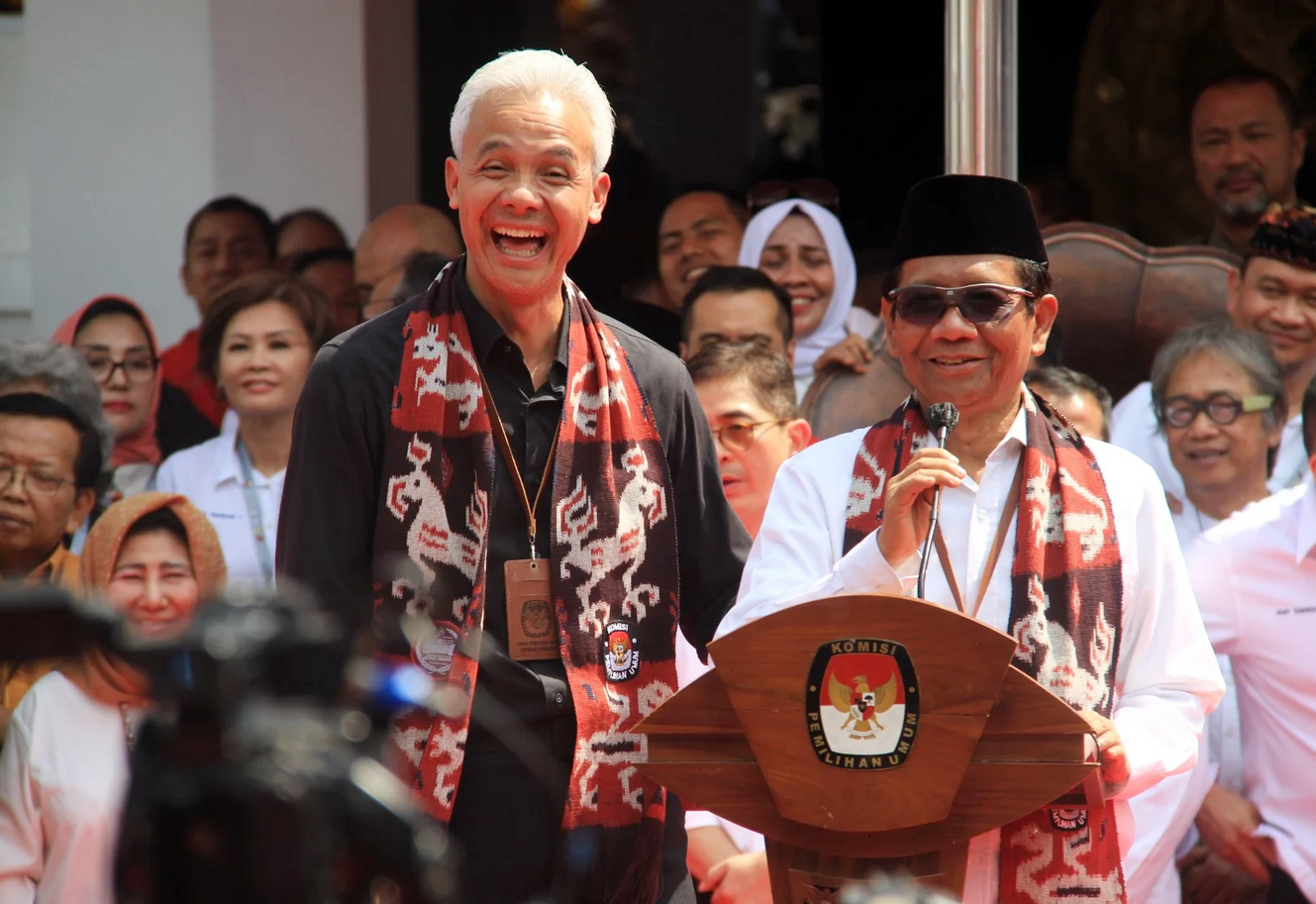Candidates opened their campaigns Tuesday for Indonesia’s presidential election, which is shaping up as a three-way race among a former special forces general who’s lost twice before and two former governors.
The three presidential hopefuls have vowed a peaceful race on Monday as concerns rose their rivalry may sharpen religious and ethnic divides in the world’s most populous Muslim-majority country.
Ganjar Pranowo, the governing party’s presidential candidate and former governor of Central Java, started his first day of the 75-day campaign season in Indonesia’s easternmost city of Merauke in South Papua province, while his running mate, top security minister Mohammad Mahfud, began his tour from the westernmost city of Sabang in Aceh province.
Candidates opened their campaigns Tuesday for Indonesia’s presidential election, which is shaping up as a three-way race among a former special forces general who’s lost twice before and two former governors.
The three presidential hopefuls have vowed a peaceful race on Monday as concerns rose their rivalry may sharpen religious and ethnic divides in the world’s most populous Muslim-majority country.
Ganjar Pranowo, the governing party’s presidential candidate and former governor of Central Java, started his first day of the 75-day campaign season in Indonesia’s easternmost city of Merauke in South Papua province, while his running mate, top security minister Mohammad Mahfud, began his tour from the westernmost city of Sabang in Aceh province.
Java has more than half of Indonesia’s 270 million people, and analysts say it will be a key battleground in the Feb. 14 election.
While their rivals began their campaigns, the third candidate, Prabowo Subianto, kept his activities Tuesday to his role as defense minister, and his running mate, Gibran Rakabuming Raka, kept to his duties as mayor of Central Java’s Surakarta city. Both will start campaigning on Friday, according to Nusron Wahid, Subianto’s national campaign team spokesman.
Nearly 205 million Indonesians are eligible to vote in the 2024 presidential and legislative elections in Southeast Asia’s largest democracy.
The presidential election will determine who will succeed President Joko Widodo, serving his second and final term. Opinion polls have forecast a close race between Subianto and Pranowo, while Baswedan is consistently in third place.
The presidential race looks to be tight with political plays aplenty, said Arya Fernandes, a political analyst from the Center for Strategic and International Studies Indonesia.
“With a swing voter is still around 30%, our electorate is still susceptible to change and dynamic due to several conditions,†Fernandes said, adding that the Constitutional Court’s decision allowing Raka’s candidacy may not be good news for Subianto.
The court’s 5-4 decision in October carved out an exception to the minimum age requiremen t of 40 for presidential and vice presidential candidates, allowing Widodo’s 36-year-old son to run.
The ruling has been a subject of heated debate in Indonesia with critics noting that the chief justice, Widodo’s brother-in-law, was eventually removed by an ethics pane l for failing to recuse himself from the case and making last-minute changes to election candidacy requirements.
The appointment of Raka has been widely seen as implicit support from Widodo for Subianto, prompting his rivals’ supporters to publicly call on the president to remain neutral.
Analysts said Widodo, commonly nicknamed Jokowi, had been distancing himself from the Indonesian Democratic Party of Struggle, under whose banner he ran in 2014 and 2019.
By supporting Subianto, Widodo has “practically abandoned the party that made him a household name,†wrote Nathanael Sumaktoyo, a political analyst from the National University of Singapore, in a New Mandala journal last week.
Without his own grassroots political machinery, Widodo obviously sees his son’s candidacy as the most feasible way to achieve his political goals and will secure his policy legacy if Subianto wins the election, Sumaktoyo said.
Having his son in the country’s second highest office in the country “will maintain, if not expand, the family’s political clout and shield it from political and legal witch hunts,†Sumaktoyo said, “It is not at all clear how Jokowi thinks he can persuade a military man to do his bidding once he is outside the circle of power.â€
___
Associated Press





